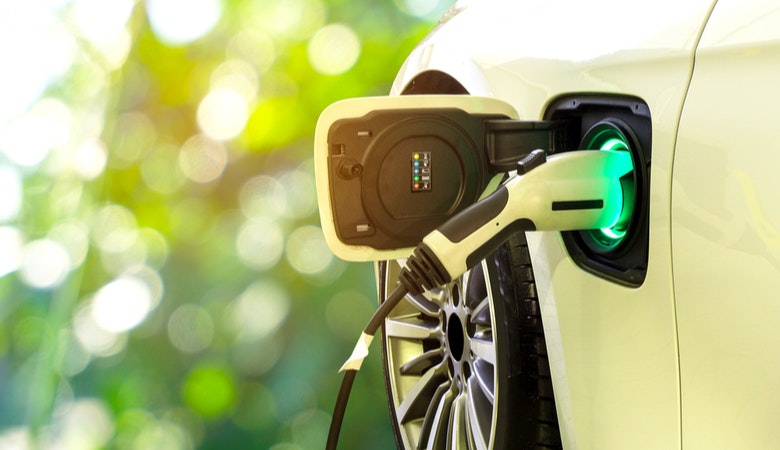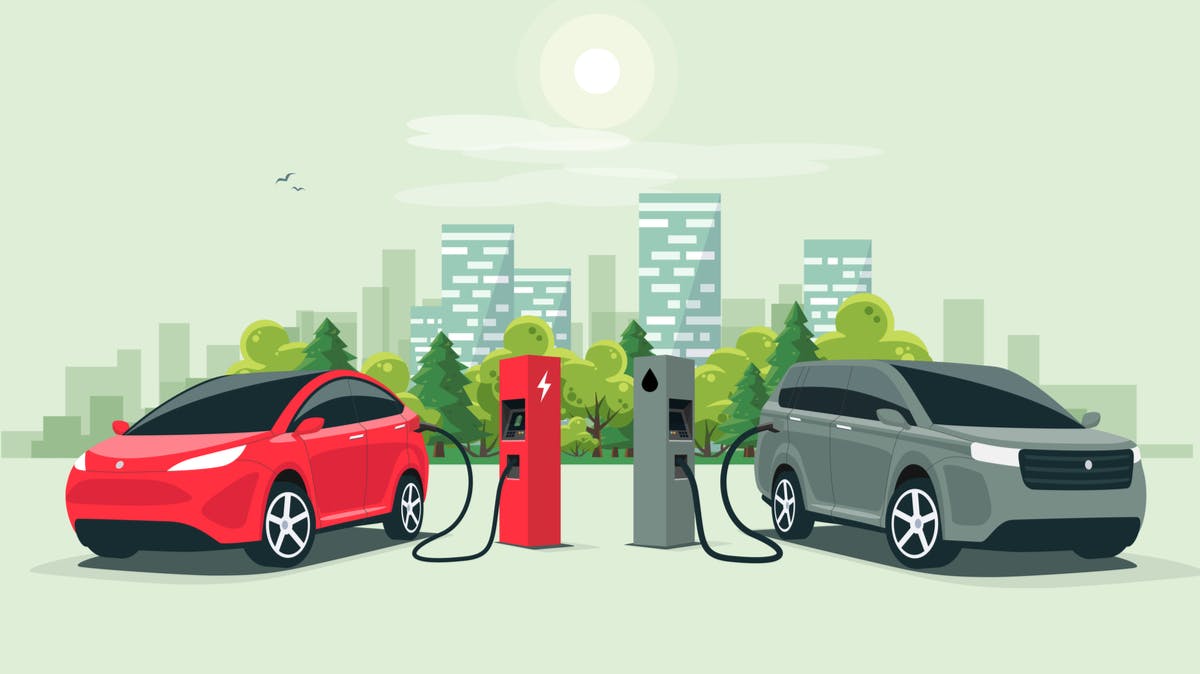E-car or e-fuel – who will win the race?
display
Everyone is talking about sustainability, including in the mobility and logistics sector. There are many ideas, concepts and technologies – keyword e-car, e-fuel and co. But which solution really has potential?
Germany wants by 2050 “Largely greenhouse gas neutral” be. The goal by 2030 is to reduce greenhouse gas emissions – measured against the 1990 level – by at least 55 percent. These are ambitious goals for which previous measures are insufficient.
Heavier artillery must be brought up. In addition to industry and construction, there is a lot of potential for savings in the area of mobility and logistics. In order to reduce CO2, fossil energies in particular would have to be replaced by renewable ones: no more heavy fuel oil for shipping, no more kerosene for air traffic and neither diesel nor gasoline for motor vehicles. The best conditions for electric mobility – right?
The electric car and its (range) limits
The switch to Electric car is also picking up momentum in Germany. The density of charging stations in large and small cities is steadily increasing. Cars, scooters and buses with high-performance batteries are increasingly buzzing along the streets alongside diesel and gasoline-powered vehicles.
Quiet, odorless and without local CO2 emissions – the advantages of the electric car are obvious. At least in urban areas, where the distances covered are usually in the double-digit kilometer range and are therefore easy to manage with the batteries currently installed. The massive subsidies that e-cars are currently enjoying from the state and industry do the rest. By 2030 (keyword: climate target!), Electric cars will even be exempt from vehicle tax.
But what about the range problem? When it comes to covering long distances in one go or transporting heavy goods, the performance of the Stromer looks poor. Although the development of batteries has made great strides in recent years, the results are not yet really satisfactory for many everyday mobility requirements. Speaking of batteries: if you take a closer look, the environmental friendliness of e-cars is also shaken, because the production of the lithium-ion batteries currently in use requires lithium and cobalt, the degradation of which sometimes causes greater ecological damage. But are e-cars the only way to drive climate-neutral? In theory, combustion engines can also be climate-neutral – with so-called e-fuels.
Does the future lie in synthetic fuels? (Image: Shutterstock / Scharfsinn)
E-fuels and the dream of a CO2-neutral fuel
While most people are familiar with e-cars, the term is E-fuels still not very widespread. Electric petrol? Nearly! E-fuels are synthetic fuels that are produced from water and carbon dioxide (CO2) with the help of renewable energies. Specifically, hydrogen is generated from water by electrolysis using large amounts of renewable electricity. With the addition of CO2, this is then turned into liquid or gaseous fuel. If the CO2 comes from the air, almost as much carbon dioxide is used in the production of the synthetic fuel as is released again in the subsequent combustion.
Theoretically, conventional internal combustion engines could already run on e-fuels, because in terms of their chemical properties they hardly differ from conventional fuels that are refined from crude oil.
Sounds good? In theory, definitely! In practice, however, it (still) looks poor. So far, e-fuels are not available on a large scale, which is not least due to the extremely complex and correspondingly expensive production of the synthetic fuel. A liter of e-fuel would currently cost around 4.50 euros – an amount that very few are willing to pay. Optimistic estimates assume that the price could be reduced to 2.30 euros by 2030 – but is that enough?
Some complain that it is “unaffordable and inefficient”, while others see it as the “future of mobility”. So what is the ideal way to achieve the German climate targets? The e-car or e-fuels – or something completely different?

At Automechanika Digital Plus 2021 you will find out everything about the climate-friendly mobility of the future. (Image: Shutterstock / Smile Fight)
Make up your own mind – at the Automechanika Digital Plus 2021
The question of the right strategy in the area of mobility and logistics moves the industry and is controversial. On the Automechanika 2021 entrepreneurs, startups and companies present their approaches and solutions for future drives and provide insights into new approaches with and without e-fuel or battery operation.
The Automechanika Frankfurt is the international trade fair for the automotive industry for equipment, parts, accessories, management and services. From September 14-16, 2021 the event will take place once in the “Digital Plus” format. In addition to an exhibition on the exhibition grounds and an exciting supporting program, it offers all participants the possibility of digital participation, presentation and networking. The event is an established industry meeting point for experts, mobility pioneers and trade visitors from the aftermarket to discuss current topics and trends for industry, workshops and retail.
At Automechanika Digital Plus 2021 you will find out which trends will move us tomorrow. Be there and help shape the future of mobility.
Find out more about Automechanika 2021
Are you looking for more articles on mobility and logistics of the future? In the topic special Progress is movement do you read as well:



